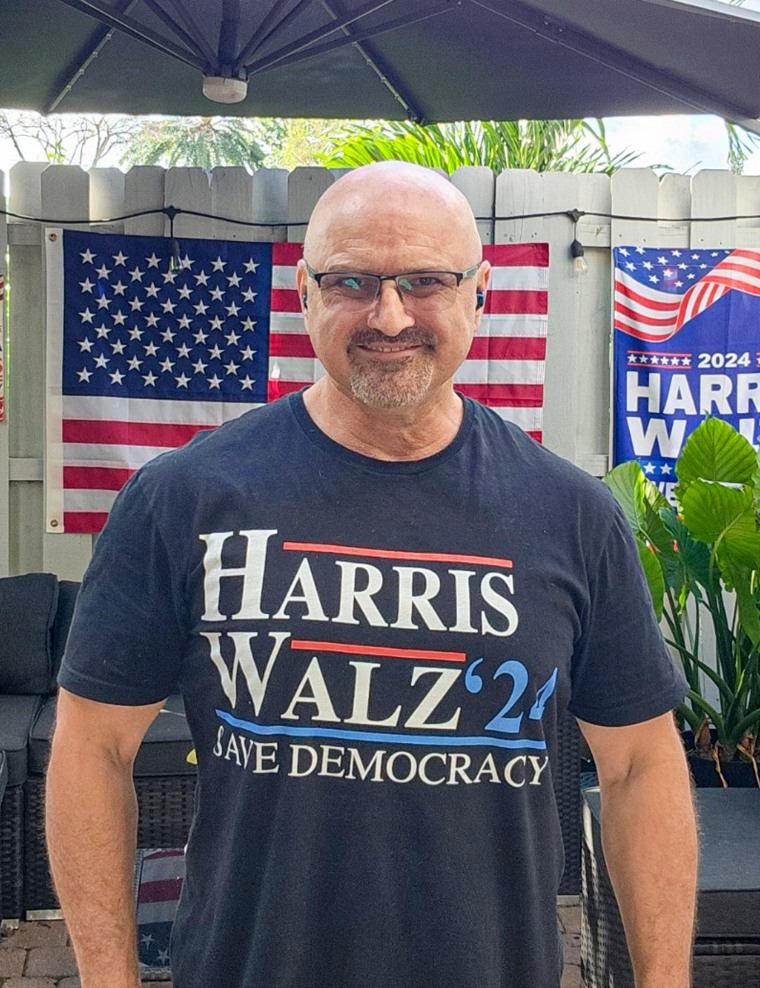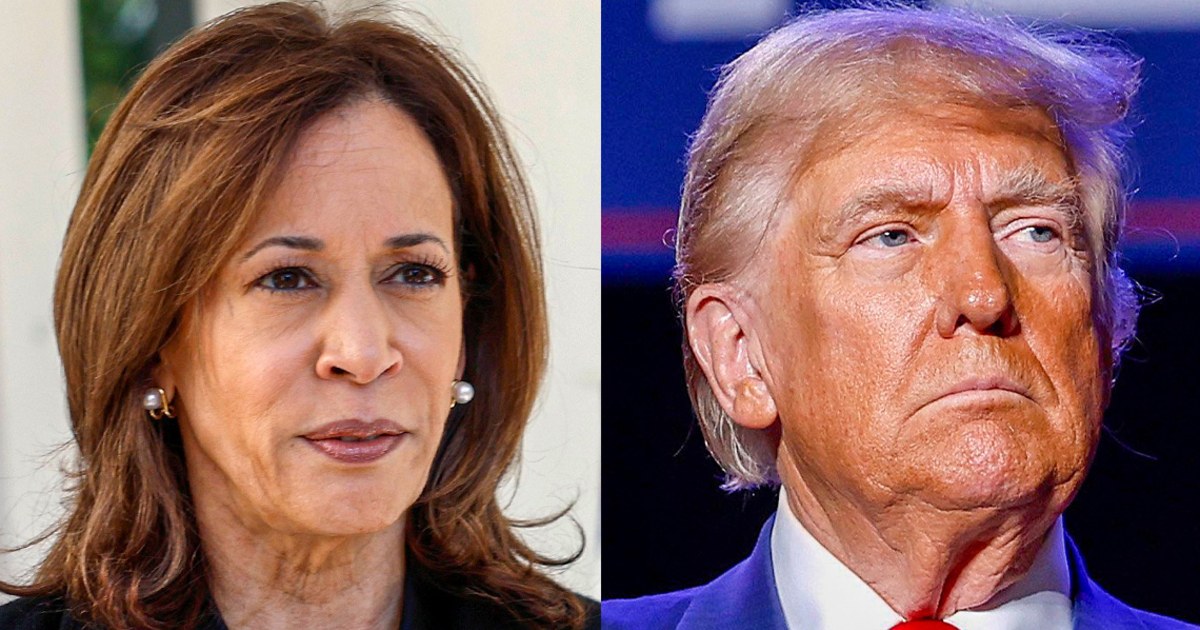Chris Gonzalez, 33, just voted in his first presidential election. The Tucson, Arizona, resident cast his ballot for former President Donald Trump.
“I just want the economy to be better,” Gonzalez, currently a salesperson for a roofing company, said. “I remember I was unemployed when he [Trump] was when he first got office, and I always had job offers. The price of consumables was cheaper. … And under this administration it’s like some months we barely get by.”
Gonzalez is one of a growing number of Latino men who say they will vote Republican in this election cycle, compared with 2020, according to a September NBC News/Telemundo/CNBC poll, reducing a lead Democrats held over this key demographic.
While Vice President Kamala Harris led Trump among Hispanic voters overall, 54% to 40%, each candidate got 47% support among Latino men, a marked difference from the 26-point lead Harris had among Latinas.
Huemac Badilla, 54, who voted for Trump in 2016, 2020 and again this year, said he can remember attending his very first Trump rally in 2015. He had seen the Republican candidate pool slowly dwindle and as a result decided to research the Trump campaign. It wasn’t long after that when he and his wife traveled from Chandler, Arizona, to Phoenix to attend what would end up being the first of several Trump events he’s been to.
“I took my first photo with the colored hat there,” he said, referring to Trump’s “Make America Great Again” hat. “After that photo, there was controversy in the family, there was controversy with friends, but we didn’t care.”
For Republican political consultant Mike Madrid, the Republican gains in Latino support especially among men are a long-term trend.
“I think it’s really important that we look at it that way — because it’s not like it’s just swinging with a candidate or a personality, it’s a longer-term demographic change in the Latino vote,” Madrid said.
Madrid, author of “The Latino Century” and co-founder of the anti-Trump super PAC The Lincoln Project, said he’s increasingly seen Latino voters become pocketbook voters. “They don’t view themselves as much as ethnic or racial voters — primarily, they view themselves as ethnic working-class voters,” he said.
This divide is increasingly pronounced as more Latinos are born in the U.S. and more Latina women get college degrees compared with their Latino male counterparts, who are opting for blue-collar professions instead, he said.
Democratic political strategist Chuck Rocha, founder of the bilingual political consulting firm Solidarity Strategies, said he disagrees with the notion that Latino men voting Republican is a sign of a long-term trend. But he said there’s a need to include this demographic more, especially those without college degrees, in future conversations around political messaging.

Despite gains among Latino male voters, the pro-Trump sentiment is far from widespread. Miami resident Raul Gonzalez said he has family members who are Trump supporters but he has chosen to vote for Harris, in part, due to her work in the Biden-Harris administration.
“I absolutely love, love the job that they’ve done,” he said. “Inheriting a pandemic recession and navigating out of that, all the legislation that they were able to pass.”
Gonzalez, who now makes TikTok videos in support of the vice president, said he was a Day 1 supporter — even joining a Latinos for Harris Zoom call after President Joe Biden dropped out of the race in July.
Tackling voters’ concerns
On unemployment and labor participation, Latinos have overall fared pretty equally under the Biden and Trump administrations, according to an analysis by Poynter: Hispanics saw record job losses at the end of the Trump administration during the pandemic, but then employment rose again under Biden.
Latinos have made gains in health insurance coverage, homeownership and inflation-adjusted wages under the Biden administration.
But frustration over higher prices has been a top concern for Latinos consistently across different polls. And the feeling among some voters that they were economically better off four years ago than under the Biden-Harris administration is a sentiment that Trump has campaigned on and Harris has been addressing in her campaign.
In a recent interview with Noticias Telemundo, Harris touted some of her campaign’s economic proposals that can expand opportunities to Latino men, including more funding to start small businesses, eliminating college degree requirements for 500,000 federal jobs, expanding job certifications in high schools and more loans for first-time homebuyers. She’s also campaigned on her proposal to tackle grocery price gouging, as she discussed in a recent town hall with Univision.

In the swing state of Pennsylvania, 60-year-old mechanic Michael Perez said immigration was his top concern.
“The border. Shut it down,” he said, pointing to media reports about the presence of the Venezuelan gang Tren de Aragua in several U.S. communities.
He said he watched Harris’ interview on Fox News, but nothing she says would change his support for Trump.
In the September NBC News poll, Trump had a lead over Harris among Latino voters on the economy, inflation and securing the border, while Harris led on all other issues including getting the country in the right direction, dealing with the issue of abortion, dealing with crime and having the right temperament to be president.
In Miami, Gonzalez said he and one of his sons, a first-time voter this year, planned to cast their ballot for Harris early.
“The one biggest thing for me is character, integrity and ethics in the individual,” Gonzalez said. “In my eyes, Trump is the antithesis. He’s the complete opposite.”

Leave a Reply